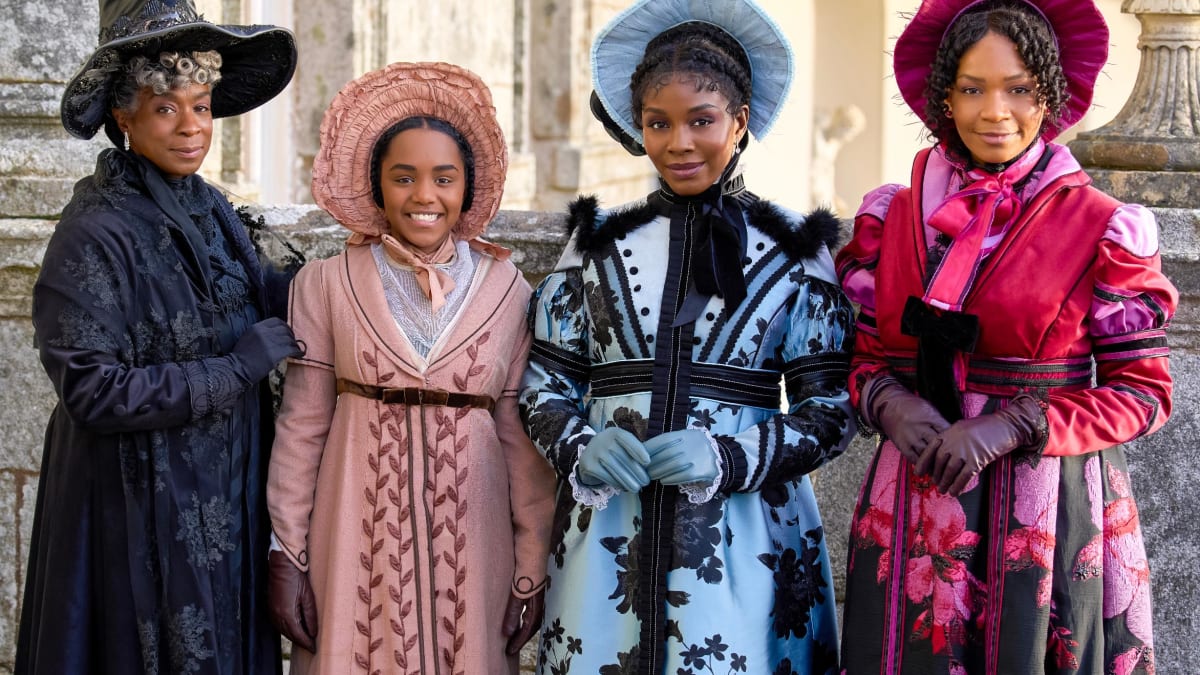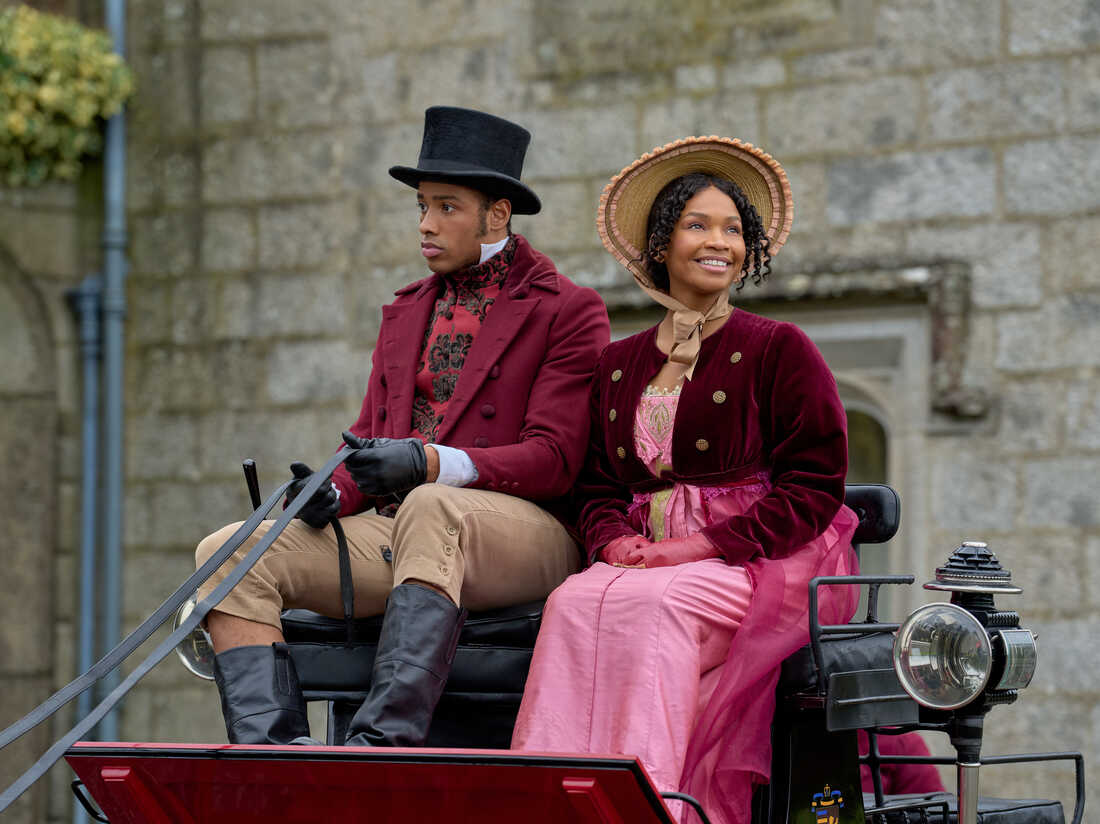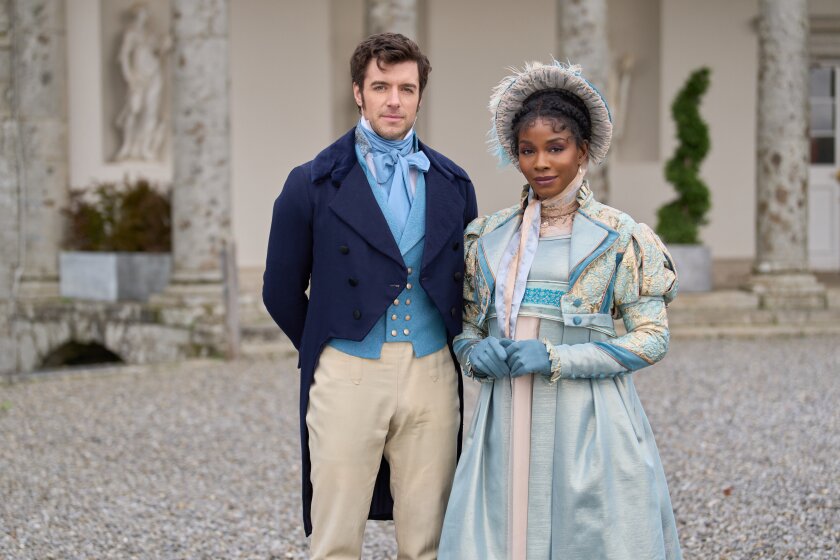Starring Deborah Ayorinde, Dan Jeanotte, Bethany Antonia, and Akil Largie
***SPOILER ALERT***
Three sisters and their mother, Mrs. Dashwood, are impoverished when Mr. Dashwood dies. Though John (Daniel Boyd), his son and heir, promised his father he’d provide for them, he’s been persuaded by his greedy wife, Fanny (Carlyss Peer), to give them little. The Dashwoods must lose their home, Norland Park, to John and Fanny. Soon Elinor (Ayorinde), the eldest Dashwood sister, meets Fanny’s stepbrother, Edward (Jeannotte). The two quickly form an attachment. The Dashwoods are invited by a relative to live in Barton Cottage, and they meet Colonel Brandon (Largie), who’s attracted to younger Dashwood sister Marianne (Antonia). However, Marianne injures her ankle while taking a walk and is rescued by a handsome stranger, John Willoughby (Victor Hugo). She falls madly in love with him and soon expects to be engaged. But heartbreak comes to both Dashwood sisters: Willoughby abruptly departs for London, devastating Marianne, and Elinor learns that Edward has long been secretly engaged to Lucy Steele (Victoria Ekanoye) when the girl confides in her.
PROS
This is the last of Hallmark’s Loveuary movies with a Jane Austen theme and is a full adaptation of Austen’s first novel, Sense and Sensibility, published anonymously in 1811.

Dan Jeannotte. As reserved, modest Edward Ferrars, Jeannotte added some much-needed charm to this movie. The actor captured the character’s awkwardness, including a tendency to get tongue-tied, and also Edward’s fundamental decency. Despite his love for Elinor, he intended to honor his commitment to Lucy, the woman he’d long been engaged to, even though that meant engendering rage from Fanny and his stepmother, who promptly disinherited him. Jeannotte’s acting captured Edward’s inner conflict between duty and his heart’s desire, and the scene in which Edward said to Elinor that he wasn’t married and that his happiness lay with her showed genuine passion; for the first time, the chemistry between Ayorinde and Jeannotte was apparent. Jeannotte was the best actor in this movie.
The setting. Just like An American in Austen, this movie was filmed in Bulgaria and Ireland, offering tastefully decorated interiors and impressive exteriors to help immerse viewers in Austen’s early-nineteenth-century world.
CONS
Too much to live up to, too much plot, and too little time. When I first heard about Hallmark’s adaptation of Sense and Sensibility, I was skeptical that it could succeed. The 1995 version, directed by Ang Lee and starring Emma Thompson, Hugh Grant, Kate Winslet, and Alan Rickman, can hardly be improved upon. It’s a tough act to follow, and comparisons between the two versions would be inevitable. The story and characters are complex, and I thought that creating a satisfying adaptation in Hallmark’s standard one hour and twenty-four minutes would be so challenging that pulling it off would require divine intervention. Indeed, a lot of incident was crammed into this movie. The basics of the story were covered, but at the expense of developing each scene to its full potential. The drama felt half baked, often because key scenes were abbreviated. To give just one example, Marianne’s illness was over with so quickly and with so little struggle that the danger she was in barely registered. The film wasn’t helped by the acting.
Lackluster performances. Apart from Dan Jeannotte, the actors didn’t really capture Austen’s characters; their performances lacked the subtlety and depth that was needed. Ayorinde made a sympathetic Elinor but didn’t portray this character’s essential tendency to hide her feelings behind an almost impenetrable wall of reserve. In fact, Ayorinde’s Elinor often expressed too much emotion. Antonia’s performance as Marianne didn’t charm me, and the character didn’t seem sufficiently heartbroken over Willoughby until she encountered him at the ball. And although the two sisters are supposed to represent two opposites—sense (Elinor) and sensibility (Marianne)—they weren’t that different from one another in this version. To his credit, Largie as Colonel Brandon conveyed dignity and honor, but his simmering frustration at Marianne’s attachment to Willoughby, an unworthy man, was absent. And Largie seemed too close in age to Antonia; Brandon is supposed to be about twenty years older than Marianne, and the plot requires the age gap. Hugo’s Willoughby was wooden and bland but should have been charismatic—someone that impulsive, emotional Marianne would be captivated by.

The ridiculous. As soon as the Dashwoods moved to Barton Cottage, the mother lamented the family’s reduced circumstances. From her remarks, you would have thought they’d moved into a hellhole, but the cottage was lovely and beautifully decorated. There was no sense that they were suffering, and they maintained a lavish lifestyle. Another ridiculous thing was Lucy’s obliviousness to Elinor’s distress when she revealed she was engaged to Edward. Lucy never asked what was wrong. How could she not notice that she’d upset Elinor deeply?
Costume design. Some of the costumes were in garish colors and had bold patterns, making them strangely flamboyant. Even the ones in more subtle tones were overly embellished with fussy trim and lace. Overall, the fashions weren’t true to the elegance of the Regency era and detracted from this film.
My grade for Sense and Sensibility: D
Caroline Kaiser is a professional book editor who specializes in fiction and memoirs, and she’s been guiding writers toward publication since 2007. Caroline is also the author of two ghostly mystery novels, Virginia’s Ghost and The Spirits of South Drive. Before she embarked on an editing and writing career, she spent many years working in a Toronto auction house as an antiques appraiser. Apart from curling up on the couch and drinking tea as she watches Hallmark movies, Caroline enjoys baking and exploring London, Ontario, the picturesque city she now calls home. Her website is www.carolinekaisereditor.com.







